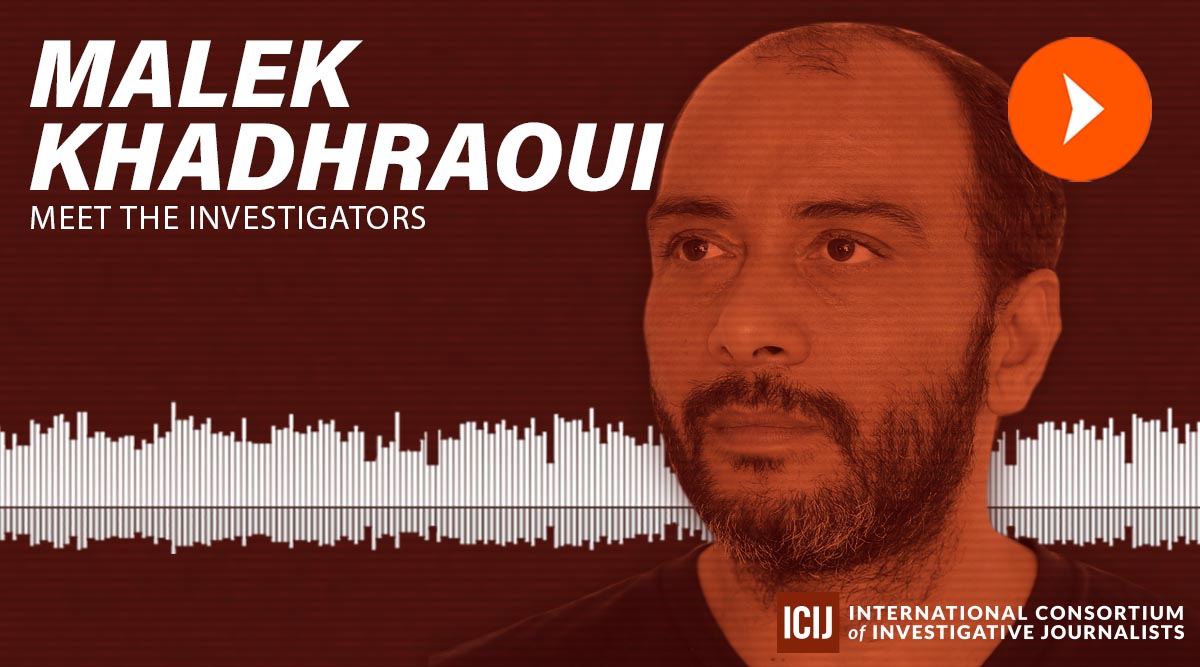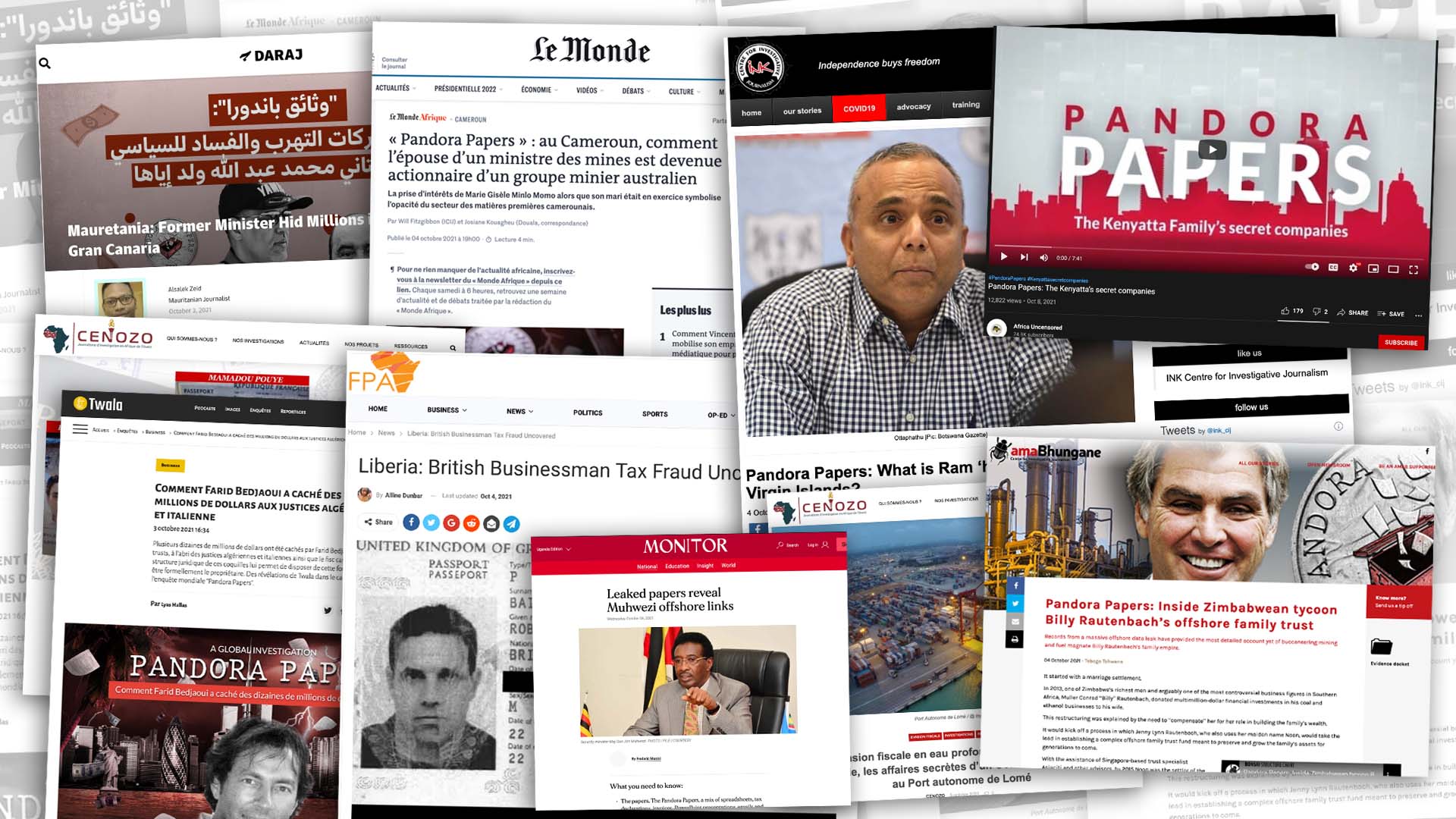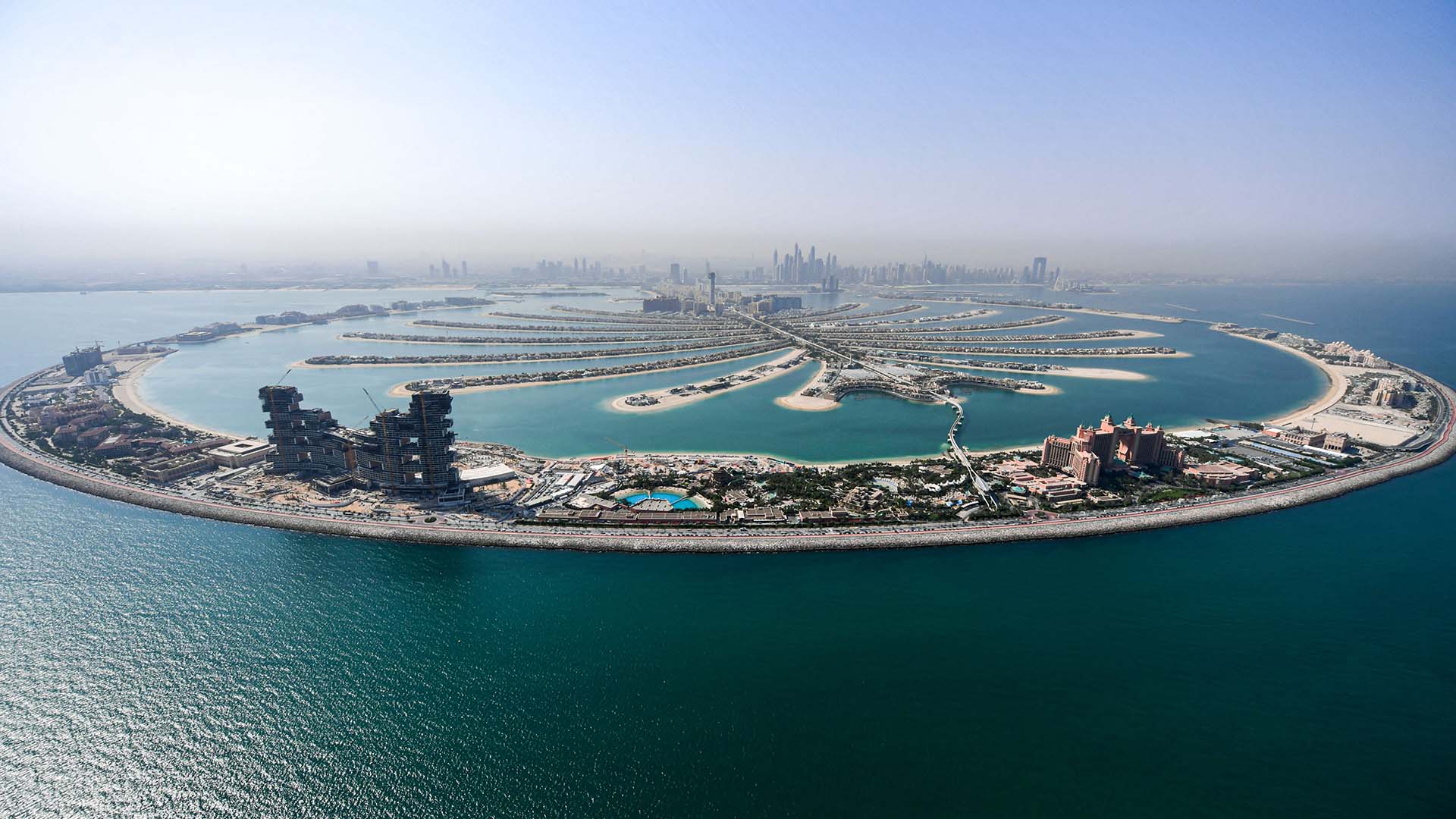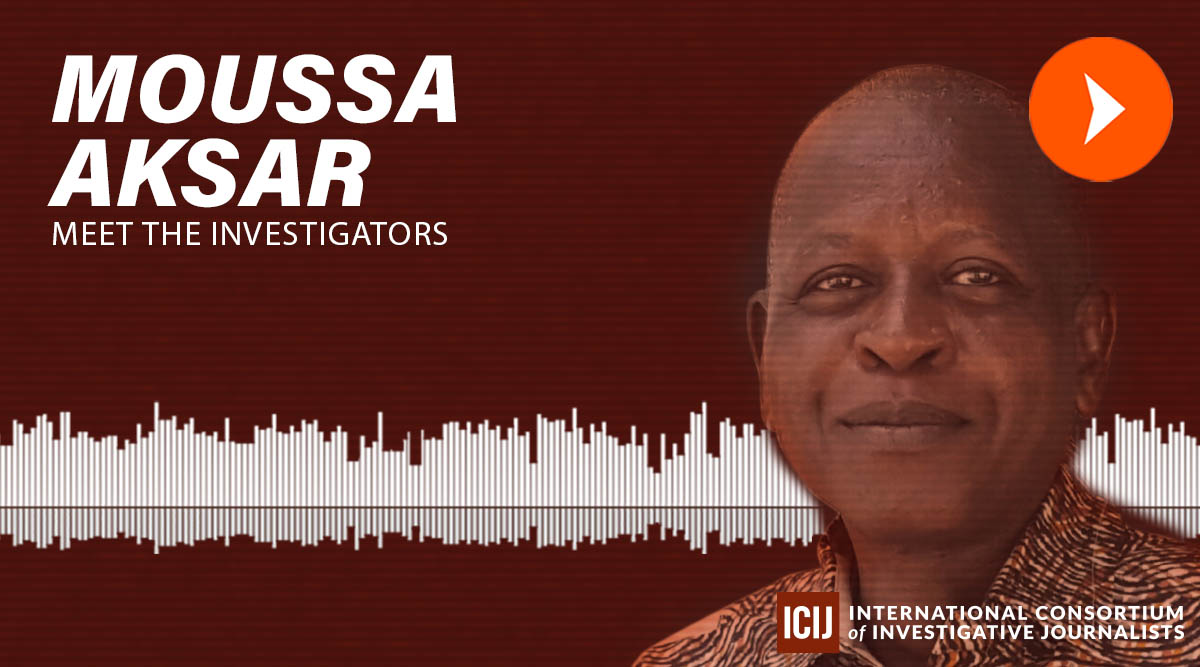MEET THE INVESTIGATORS
Designing a sustainable business model for ‘mesmerizing’ journalism
In our latest episode of Meet the Investigators, we speak with ICIJ member Malek Khadhraoui about the founding of the mission-driven Tunisian investigative outlet Inkyfada, and its innovative business model.

The International Consortium of Investigative Journalists collaborates with hundreds of members across the world. Each of these journalists is among the best in his or her country and many have won national and global awards. Our award-winning monthly series, Meet the Investigators, highlights the work of these tireless journalists.
In December, we spoke with ICIJ member Malek Khadhraoui, reporter, trainer and co-founder and executive director of Inkyfada, a Tunisian magazine dedicated to investigative and long-form journalism. Conceived following the fall of Tunisian President Zine El-Abidine Ben Ali in 2011, Inkyfada is an innovative, mission-focused news organization that funds its journalism by providing cutting-edge development and design work to other media outlets. Malek and his team have been collaborating on ICIJ investigations for more than six years, both as reporting partners providing essential coverage of the Middle East and North Africa region, and also as designers and developers, providing illustrations and visuals for some of our major investigations, including most recently the Pandora Papers.
ICIJ’s award-winning Meet the Investigators series is emailed exclusively to ICIJ’s Insiders each month before being published on ICIJ.org, and is one of a number of ways we like to thank our community of supporters who are so integral to our independent journalism. You can join our Insiders community by making a donation to ICIJ. Thanks to all our ICIJ Members who have shared their stories with us, and to all our supporters for helping ICIJ continue its work.
TRANSCRIPT
Sean McGoey: Welcome back to the Meet the Investigators podcast from the International Consortium of Investigative Journalists. I’m your host, Sean McGoey, and I’m an editorial fellow at ICIJ.
This month, we’re talking to a Tunisian journalist who founded an independent newsroom that has collaborated with ICIJ on groundbreaking investigations like the FinCEN Files and Panama Papers.
Malek Khadhraoui: I’m Malek Khadraoui. I’m the executive director of Inkyfada.
McGoey: Inkyfada has worked with ICIJ on seven projects dating back to the Swiss Leaks investigation in 2015. Sometimes, they’ve been a reporting partner. Sometimes, their designers have provided illustrations.
For the Pandora Papers, ICIJ’s biggest investigation ever, they pulled double duty — designing the stunning graphics behind the project while also reporting on the offshore holdings of prominent politicians and businessmen from the Middle East and North Africa.
Malek and I talked about the Pandora Papers, Inkyfada’s innovative business model and how an autocratic regime kickstarted his journalism career. Here’s our conversation.
One of the things that really has stood out to me about the Pandora Papers investigation is that the Middle East — especially Dubai, but also the larger region — is growing in influence in the world of offshore finance. Why is it so important to shine a light on that for readers?
Khadhraoui: Yeah, Dubai especially, as you mentioned, I think it’s a strategy to invest in [being] this alternative to “old-fashioned” places [like] Panama or the British Virgin Islands, which are now a little bit flagged. And it’s a very good alternative to Switzerland or Luxembourg or some of the European countries. They want to sell it as a place where you can have the same kind of quality services for this kind of people looking for secrecy, and I think Dubai is openly trying to play this role.
It’s a new alternative for the financial world to have those very friendly, not-asking-a-lot-of-questions places to put their money in.
McGoey: Another major part of this project was the Power Players, ICIJ’s profiles of country leaders and high-ranking government officials. Inkyfada put out its own series of profiles on the major Tunisian names in the data, including political power broker Mohsen Marzouk — whose story you already broke as part of the Panama Papers investigation in 2016. Who is Mohsen Marzouk, and what was the new information that you found?
Khadhraoui: During the Panama Papers in 2016, we discovered that Mohsen Marzouk was in discussion with Mossack Fonseca to open a company in between the first and second rounds of the Tunisian presidential election. He was the political adviser and the chief of the campaign of the future president of the country. And the guy was asking Mossack Fonseca about how to open a company in the British Virgin Islands.
He completely denied the fact — he was saying “No, this is a lie. They want to target me as I am a successful political player.” Five years after, we have the other part of the story. When he was asking to open a company with Mossack Fonseca, he was in contact at the same time with SFM, asking to open a company [also in the British Virgin Islands].
He was assuring SFM that the money that he will put in the company is legal and legitimate, and it’s coming from his own work. But he used the full spectrum of services that SFM was providing to hide his identity: a false director, a false shareholder. It wasn’t really [the] behavior of someone who’s just putting regular money [into the company].
McGoey: We’ve already seen some impact from the Pandora Papers. In the Czech Republic, Andrej Babiš is now the former prime minister, after his party suffered surprising election losses just days after the first stories were published. But there hasn’t been nearly as much public reaction in the Middle East, even though there are many heads of state and other prominent figures in the data. How hard is it to determine whether an investigation like this has been successful in a region where many autocratic governments restrict public expression?
Khadhraoui: I think we need to distinguish between the official communication, or the official media scene, and the underground conversation between people about the impact of those big investigations.
[In] Tunisia, for example, there is not a lot of impact in terms of money recovery, or [the] justice [system] trying to sue some people or investigate some of the people that we worked on, but in the same time, the question of tax evasion [and] money laundering — especially when it comes to politicians or prominent businessmen — it became something very obvious to everybody, so people are really consuming this content. And in the public opinion, it became something unacceptable for everybody that the wealthiest [are] trying to avoid paying taxes and put their money outside of the country.
The Swiss Leaks and Panama Papers had a big public opinion impact, and we had a judiciary action against the people that we worked on on the Panama Papers — without big results, but at least there is a parliamentary commission investigating this. There is a case open against the people involved. We [were] really surprised that this time, for the Pandora Papers, nothing so far [has] happened in terms of official reaction from the authorities.
From the media outlets, I can understand. There is [an] economical reason that made most of the mainstream media in the country unable to report on those people, as they are shareholders or major advertisers or something like that. But there is [a] difference between what the President is saying about corruption and money laundering and tax evasion and the absence of reaction from the authorities today.
McGoey: Before journalism was part of his life, Malek was part of the Tunisian diaspora. He studied business administration and lived in France during the dictatorial reign of President Zine El-Abidine Ben Ali.
In 2006, Malek got his start in journalism as part of the independent collective blog Nawaat, a site founded by other Tunisian-born writers living abroad who wanted to chronicle the abuses of power happening in their country.
In 2011, the Tunisian Revolution toppled Ben Ali’s regime, sparking the movement known as the Arab Spring, and Malek and his colleagues brought Nawaat home. A few years later, Inkyfada was born.
Khadhraoui: In 2013, when I created Inkyfada with my co-founders, we wanted to be fully dedicated to long-form investigative journalism and in-depth journalistic work.
McGoey: What is one of the biggest challenges to building a media organization from the ground up?
Khadhraoui: We are a media [outlet] producing in three languages. So we have a newsroom with three different kinds of culture: the Francophone, the Arabophone and the English also. It’s challenging for anybody to enter this newsroom, to be confronted with a very unusual way of organization.
McGoey: How do you bridge some of those gaps that arise when you have three different cultures coming together in one organization?
Khadhraoui: We have a lot of moments [where] the whole team, with the different departments and different cultures, meet in very informal ways. We have an annual retreat when we spend like three days together in a place just to know each other, to talk more about the specificities of every department or everybody’s work. And it helps [create] this common culture.
Some of the issues, we want to produce at first in one specific language, because the issue itself can be more visible in this niche of readers — the Francophone readers are maybe more aware about some of the individual freedom questions or things related to some type of issue.
So maybe we start with [choosing] the language of the reporting in terms of the audience and the capacity of the audience to interact with the content. And after, we serve it to the other languages. We try to make it clear for everybody that we are serving the same purpose, that the three versions are serving a one unique goal in a way is to impact the audience with our work.
McGoey: Inkyfada looks very different from other news outlets in the Middle East and North Africa. You deal with subjects that outlets in other places often don’t take on, like LGBTQ rights. How did you and your colleagues decide that you wanted to create something new and unique?
Khadhraoui: It’s a mission-driven media organization as we define it. So we have some values that we are fighting for, and some human rights issues or taboos in the society that need to be tackled, and need to be discussed as the country is living a very radical change on the political level but also on the [societal] level.
Tunisia is a little bit different from other Middle East countries, I think, in terms of discussing and debating personal freedom or issues related to gender. Tunisia is already ready, in a way, for this kind of discussion. It was the perfect moment for us to raise this kind of topic. Our new constitution also put a lot of new rights [regarding] the freedom of religion or the importance of privacy as citizens.
McGoey: You mention that Inkyfada is a mission-driven organization. One aspect of your mission that I find really fascinating is that Inky runs on a business model that is not so conventional for the media business. There’s no ads. You’re not taking funding from donors who might try to compromise your editorial independence. Instead, you generate a lot of your revenue through providing services to other organizations — like ICIJ! How does that business model give Inkyfada freedom to do the kind of work you want to do?
Khadhraoui: From the beginning, that was part of the DNA of the project: how to create the most independent and sustainable business model for the media [outlet], completely protected from the influences of the advertisers or investors here in the country.
We are not completely donor-free. We have 30% of our budget coming from two major donors, which are known to be very respectful of the independence of media [and] specialize in funding media. The [other 70% is] generated by services. Some are editorial: training for other journalists, or supporting media organizations to come up with editorial strategy or business models. And the other part, which is the big part, is our media lab, with developers, designers and data scientists providing design and development services — the last collaboration with ICIJ [on the] Pandora Papers, for example.
Also, we develop tools for media organizations, like a publishing tool or audience measurement tools, but also we are trying to make AI-based tools available in Arabic for media outlets in the region. The idea is really to acquire expertise [and] provide those services to Inkyfada as the first beneficiary of all this knowledge, but also generating money from that and assuring our independence.
Being a “counter-power” is attacking the corruption, attacking tax evasion, attacking money laundering — the political and economical system that is running Tunisia.
McGoey: Another thing that really sticks out to me from your mission statement is a passage that says “Inkyfada fully assumes its role as a counter-power against all injustices that flow from the corruption and impunity of the powers that be.” That’s a very forceful statement. What do you mean when you say “counter-power”?
Khadhraoui: One of the major problems of the Tunisian economy is that it’s held and is led by a very [small] number of families who are in charge of the most lucrative and the most important part of the economy with monopoly or quiet monopolies in certain sectors, which makes the corruption and the nepotism higher in the country — which is one of the main reasons [for] the distribution of wealth between the different classes in the country.
The wealthiest people try to pay the [least tax] possible and try to benefit from some of the monopoly situations that they have. We have this association between politics and finance that is ruling the country, and some of the laws are specifically made to preserve these monopolies or to preserve these privileges, and to make them stay in this position of domination.
So I think being a “counter-power” is attacking the corruption, attacking tax evasion, attacking money laundering — the political and economical system that is running [Tunisia] during the 70 years since the independence of the country.
McGoey: That approach feels especially important right now. In 2021, President Saied has dissolved Tunisia’s Parliament and is consolidating power in a way that must be worrying for people who remember Ben Ali’s autocratic regime. The country rose up a decade ago and fought for a democratic system — does it now feel like that system is on somewhat shaky footing?
Khadhraoui: We are also very concerned about this situation — as journalists, as citizens, as Tunisians living this democratic change in the country. Maybe the key word here [is] that we are an ongoing process for building democracy. So it’s not already built as something established completely, you know, functioning perfectly.
The President had in the Constitution one article allowing him to momentarily suspend the institution [of Parliament] with a certain number of rules and garde-fous [guardrails]. But the problem today is the President [has gone] far in putting into application this article, and [it looks] a bit perverted from his original purpose, and now he’s taken over all the powers in the country — the legislative ones, the executive power, but also the judiciary powers, which is a very dangerous move.
The day when the President activated this article, I think a lot of people [were] like “OK, maybe it was the only way to exit this blockage that we had in our political scene.” But I think most of the people are aware today where we’re going to go without parliament, where we’re going to go with only one guy having all those powers.
Even if there [are] no direct consequences in our freedom of expression or freedom of press, there is, at the heart of this problem, a political crisis that is here and everybody’s aware [of] it.
McGoey: And finally, what’s a piece of advice that you would give to young reporters who are trying to make a career in investigative journalism?
Khadraoui: Don’t do it if you want to be famous or rich! It’s important to to think about the reason why you want to be an investigative journalist, because it’s a very difficult job. You don’t succeed all the time. Sometimes you spend a lot of time without having any result. But it when it works — when you really go through a story and publish it — [it] is one of the most enjoyable and mesmerizing feelings that you can have as a human being. So do it for the right reason.
McGoey: I think that’s a great place to end. Thank you for joining me, Malek!
Khadhraoui: Thank you very much, Sean.
McGoey: That was our conversation with Malek Khadhraoui. Thank you to Malek, and to all of the journalists that share their stories on the Meet the Investigators podcast. Meet the Investigators is a production of the International Consortium of Investigative Journalists. This episode was hosted, produced and edited by me, Sean McGoey, with help from TK.
We’d love to hear from you, too. Don’t forget to use the hashtag #MeetTheInvestigators when you post about this episode on social media, and feel free to send us an email at social@icij.org if you have any feedback.
If you want to support the work that ICIJ and journalists like Malek do, head to icij.org/donate or drop us a line at contact@icij.org.
This is the last episode of Meet the Investigators for 2021. Thanks for listening — we’ll talk to you in the new year!
If you’re a fan of our Meet the Investigators series, please consider making a donation to support ICIJ. Not only will your donation help support our work with journalists like Malek, but as an ICIJ Insider, you’ll also receive sneak previews, access to exclusive chats with reporters and behind-the-scenes content like this delivered straight to your inbox. Donate today, and support independent investigative journalism.


